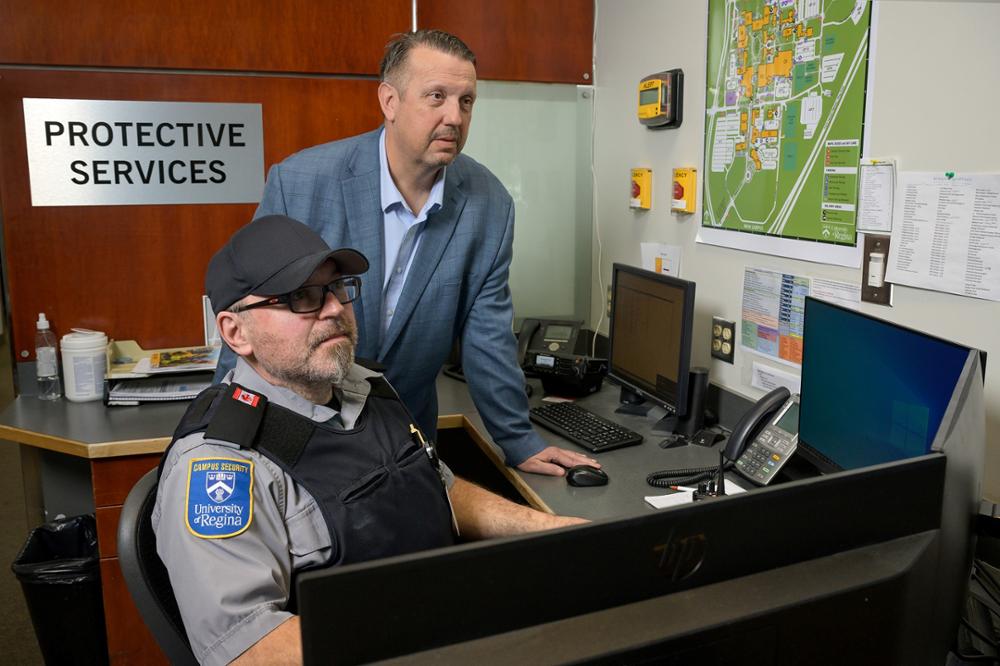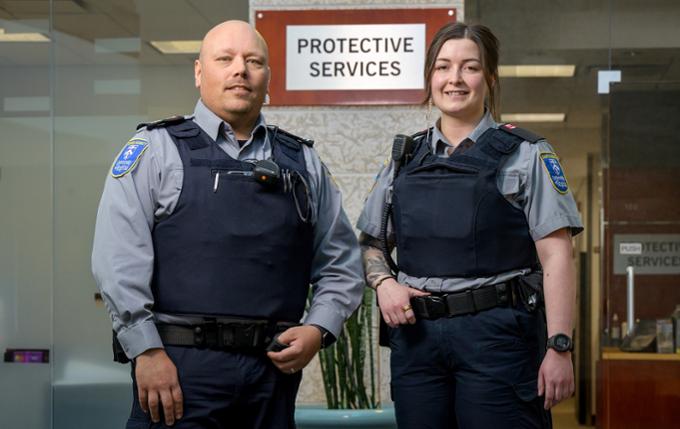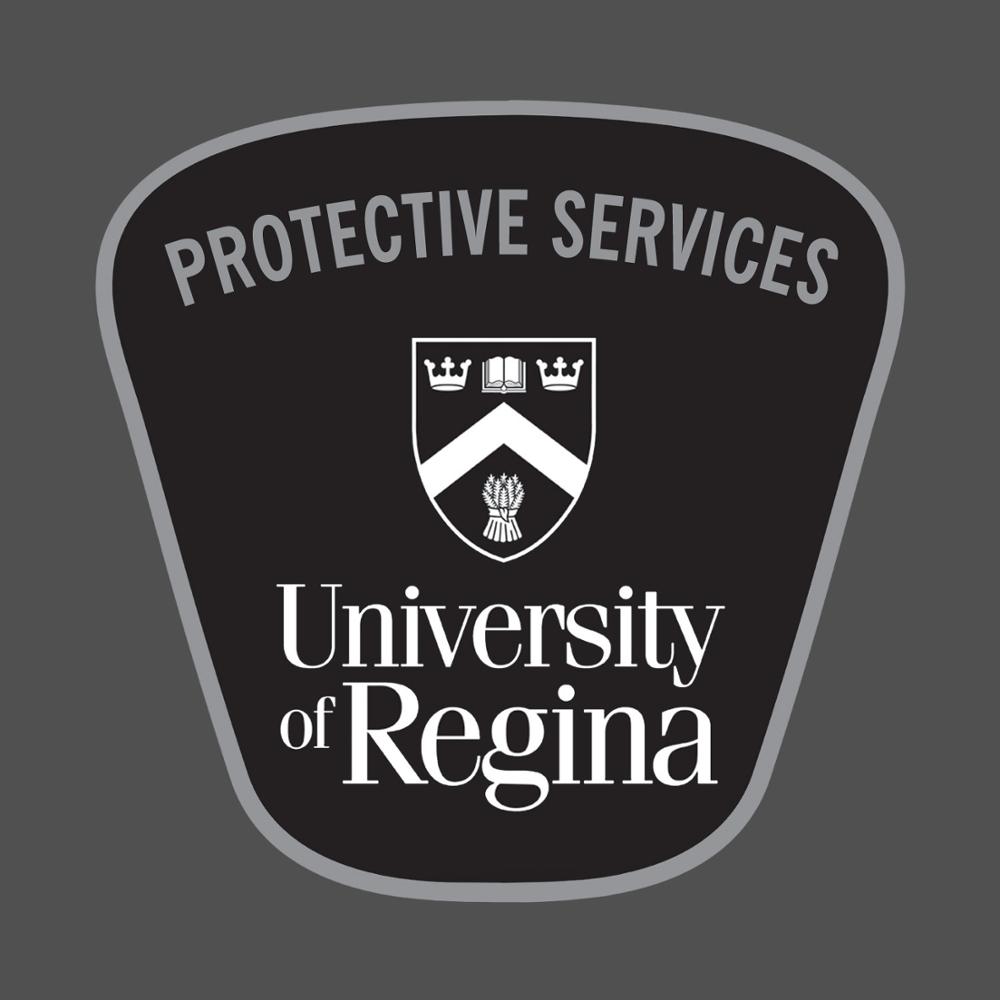After consulting with U of R student groups, administrative units, University Communications and Marketing, and others, Campus Security has embarked on a rebrand that begins with a name change. The unit is now known as Protective Services.
Brad Anderson, the director of Protective Services, says this change reflects the true nature of the team and their work. The name change also differentiates the unit from the work done by private security firms that simply observe and report.
“Protective Services is much more of an inclusive and professional name,” Anderson says. “We work closely with Emergency Management, Health and Safety, and others. Working with community partners and partners on campus is a big part of our job. So it’s about more than just security.”
The new name illustrates the team’s focus on the bigger picture when it comes to keeping the campus safe. Anderson notes that the team has advanced training well beyond that of employees of private security firms. That, he says, will continue. “We're really elevating that level of training,” he says. “I’m really excited about that. We want to make sure our team is ready for anything.”
Protective Services is much more of an inclusive and professional name. We work closely with emergency management, Health and Safety, and the Regina Police Service. Working with community partners and partners on campus is a big part of our job. So it’s about more than just security. — Brad Anderson, Director, Protective Services.
Anderson, who joined the U of R in November 2023, was immediately impressed with the experience and professionalism of the team. “We have 16 members, 11 of whom have 10 or more years of service,” he says. “I was really impressed with the group. They have none of the traditional police enforcement tools on their belt. What they do have is officer presence when they enter a room, and a great ability to de-escalate situations.”

Anderson puts an emphasis on letting students know they can approach Protective Services for help. “We're here for students, no matter what they need,” he says. “I want them to know this is an area where students can feel comfortable with coming in and seeking assistance from us whether that be to walk them to their car or to talk about an assault.”
Programs and Services
With improved training and a focus on helping students, Protective Services remains dedicated to creating a secure, safe and supportive environment to learn, teach, and work. They will continue to offer programs and services to back that up, including:
Walk A Long Program
A service for students, faculty, and staff who feel unsafe walking alone on campus, particularly during late hours or in dimly lit areas. Personnel accompany individuals to their destination, offering peace of mind, and reassurance. Call 306-585-4999 for assistance.
Lone Worker Program
Protective Services offers the Lone Worker Service to improve your safety when working or studying alone. This service is accessible to all members of the University of Regina community day or night.
Emergency Notification System (Alertus)
The University of Regina's Emergency Notification System provides quick and efficient alerts to faculty, staff, students, and visitors on campus during potentially dangerous situations, prompting immediate action to ensure safety.
To download the Alertus app to your Android device, click here.
To download the Alertus app to your Apple device, click here.
Watch for the new Protective Services look and logo around campus and don’t hesitate to ask members of the Protective Services team for assistance. They are a big part of the U of R’s commitment to supporting your health and wellness.
Banner photo: Campus Security is now known as Protective Services. Protective Services personnel Drew Novak (left) and Linsay Wallbaum pose in front of the new signage. Photo credit: University Advancement and Communications.
About the University of Regina
2024 marks our 50th anniversary as an independent University (although our roots as Regina College date back more than a century!). As we celebrate our past, we work towards a future that is as limitless as the prairie horizon. We support the health and well-being of our 16,700 students and provide them with hands-on learning opportunities to develop career-ready graduates. Our research enterprise has grown to include 21 research centres and 12 Canada Research Chairs and brings in more than $51.2 million in funding annually. Our campuses are on Treaties 4 and 6 - the territories of the nêhiyawak, Anihšināpēk, Dakota, Lakota, and Nakoda peoples, and the homeland of the Michif/Métis nation. We seek to grow our relationships with Indigenous communities to build a more inclusive future.
Let’s go far, together.

